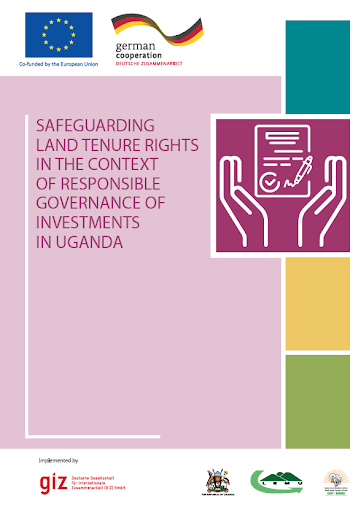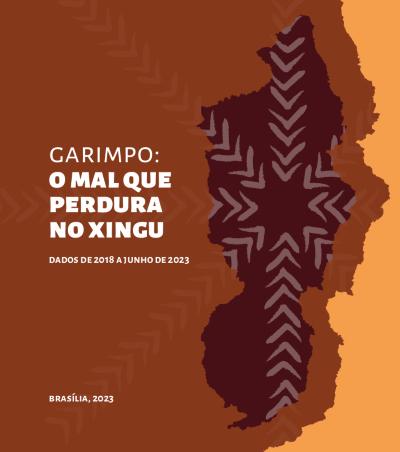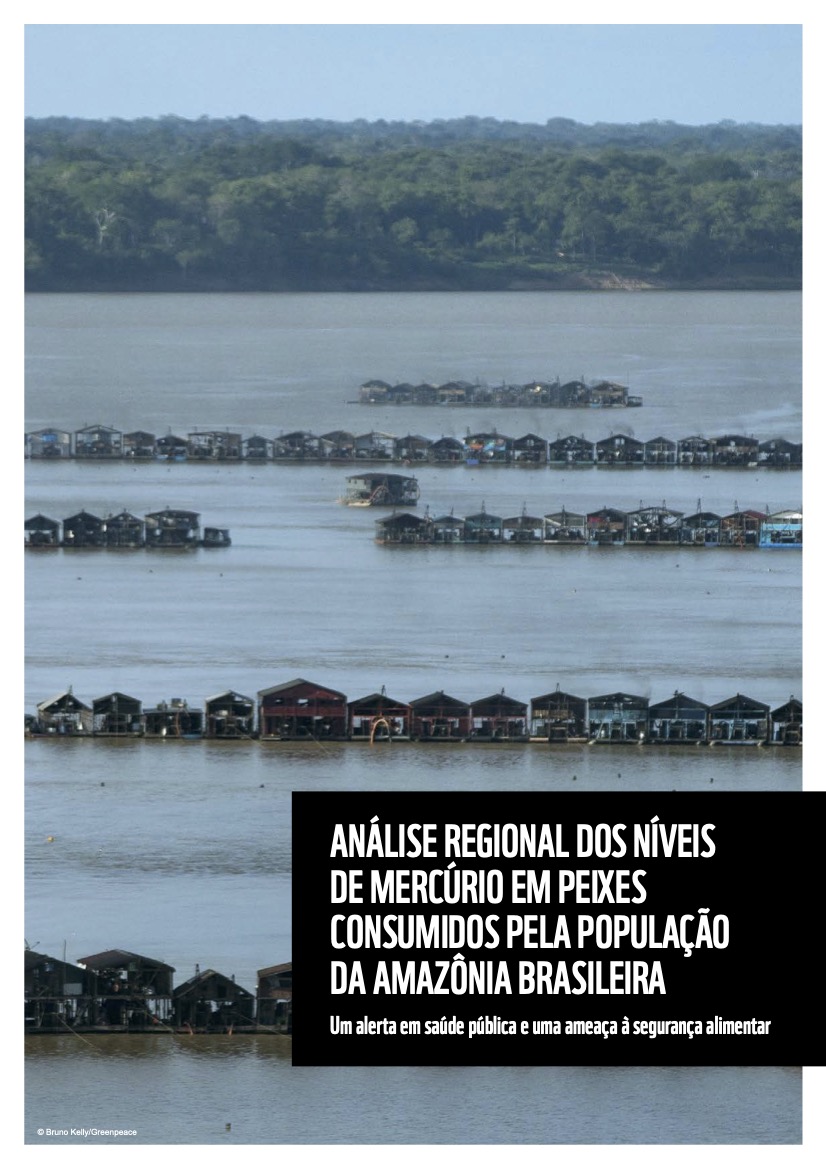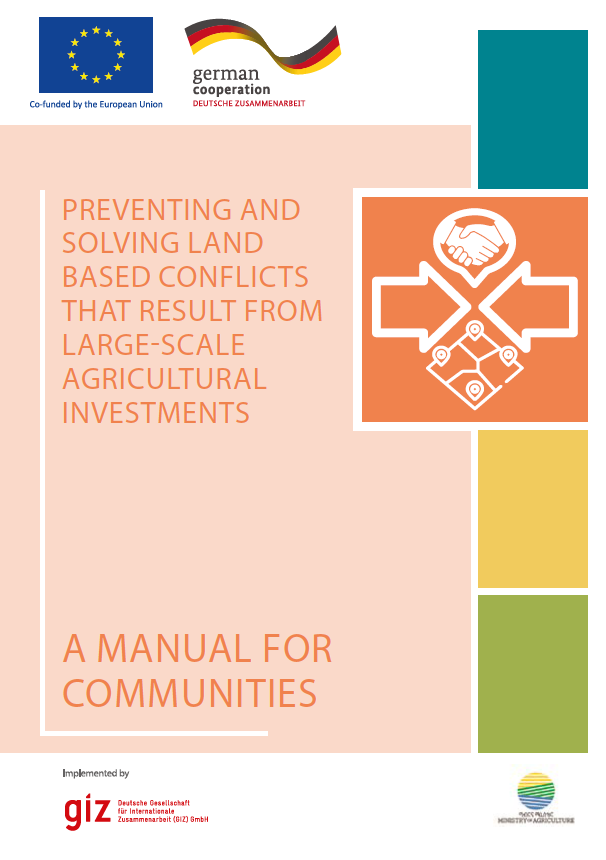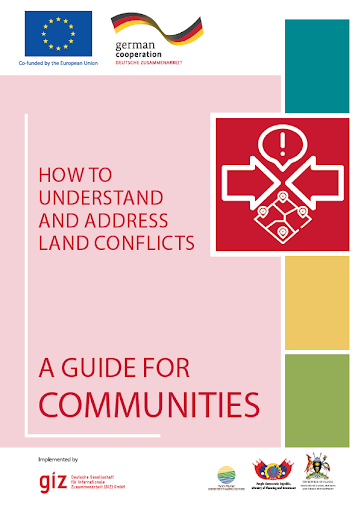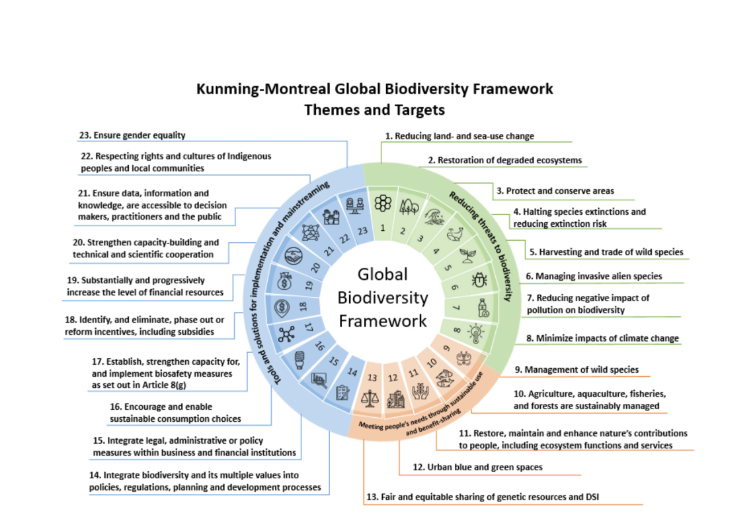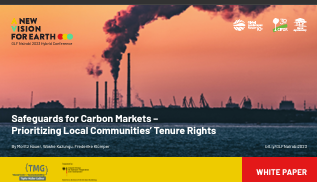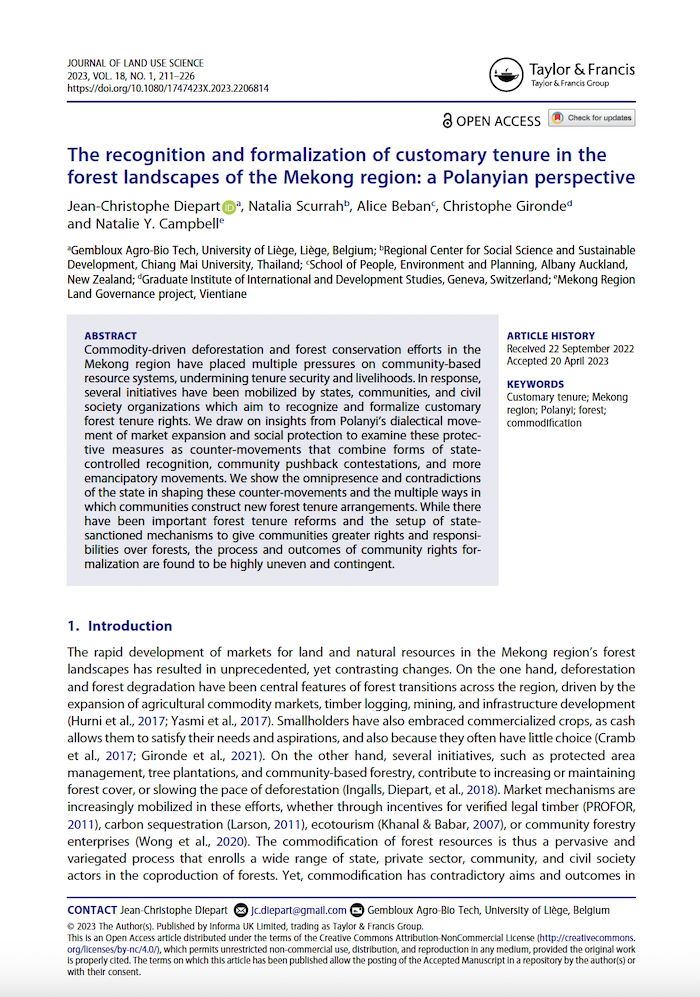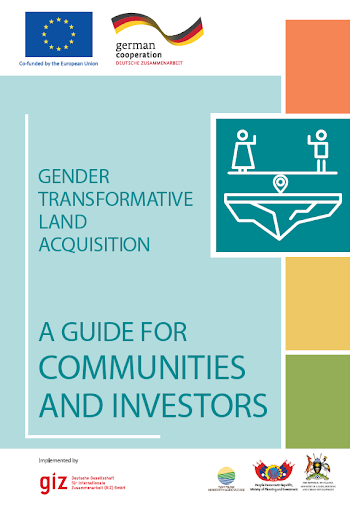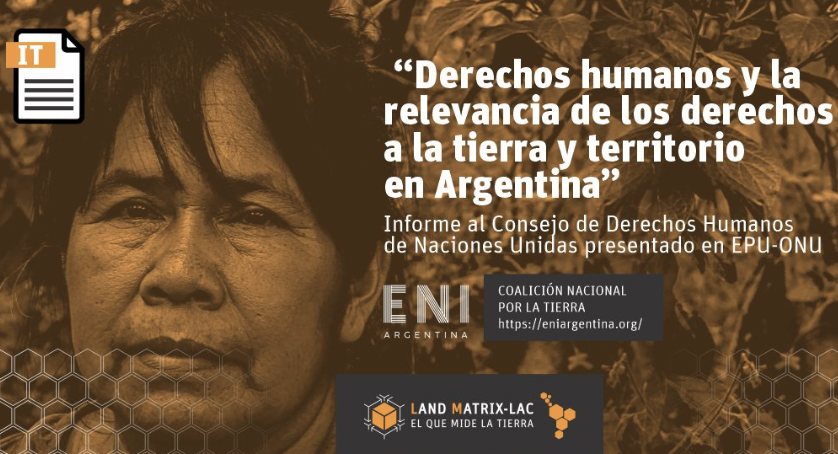Safeguarding Land Tenure Rights in the Context of Responsible Governance of Investments in Uganda
This manual is intended to provide an overview of the land tenure rights to both the investment affected communities and the investors to ensure that all the different rights on land are recognized and considered.

